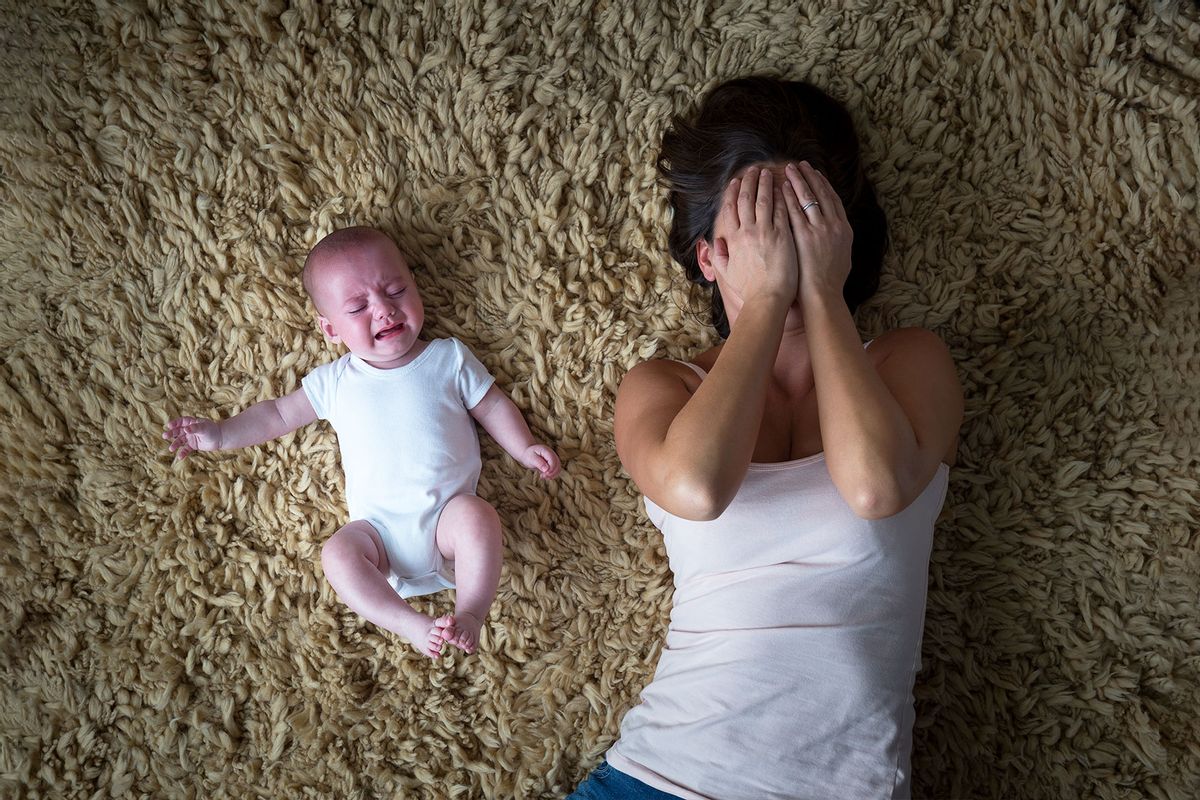Watch your tone, moms. A new study out of Germany reports a link between maternal postpartum blues and developmental delays in infants.
But while the ripple effects of parental mental health on children and the need for improved resources for families are real and pressing problems, the framing around these issues reveals some other things that could use some improvement, too.
"Communicating with babies in infant-directed-speech is considered an essential prerequisite for successful language development of the little ones," the Max Planck Institute for Human Cognitive and Brain Sciences release on the study reads. But a brief that includes "successful" and "infant" in the same sentence immediately raises a few questions. The research itself is intriguing, focusing on a small sample of 46 mothers and their infants, and the correlation between the moods of the moms and the early language development of the babies.
The findings revealed that "Even children whose mothers suffer from mild depressive mood that do not yet require medical treatment show early signs of delayed language development." Or, as a CNBC headline drastically puts it, "Mother's mood can affect the child's ability to speak, study reveals."
A mother's voice exerts an undeniable influence. A child will begin to recognize it in utero, before it learns the voices of other family members. In early infancy, it will prefer that sound over other feminine voices. And babies, as anyone who has ever found themselves in the presence of one knows, also prefer the higher pitched, universal singsong that researchers call "motherese." We instinctively lapse into that rhythmic, soothing way of talking to babies because it's how they best begin to grasp language.
Want more health and science stories in your inbox? Subscribe to Salon's weekly newsletter The Vulgar Scientist.
The CDC estimates that roughly one in eight mothers experiences postpartum depression. The number of mothers who have any postnatal mood disruption may be as high as 70 percent. And any mother facing postpartum depression, or even mild baby blues, may find it challenging to modulate her speech, leaning toward the lower, flatter tones that are often a dead giveaway of mood disorders. The mother may also be less engaged and interactive overall.
The scientists at the Max Planck Institute found that "If mothers indicate a more negative mood two months after birth, their children show on average a less mature processing of speech sounds at the age of six months," which potentially could lead to a higher risk of the child suffering a speech disorder as they grow up. This is an understandably sincere concern.
That said, it is important to stress to those individual moms who are just trying to keep a tiny screaming meatloaf alive and not feeling great today that it does not automatically follow that your child will "suffer" a speech disorder because of your immediate mood.
Perhaps more troubling here is the implication that women's legitimate physical and emotional needs are of greater concern if it means somebody won't be accepted into the Harvard class of 2044. Sure, there is nothing wrong with identifying the mental health challenges new mothers face, or the potential long term effects they may have on their offspring.
"Women are especially good at taking credit for everything that's wrong in their kids' lives."
But the dire implications of these kinds of studies, based on six month-old infants and without substantive long range data, put even more pressure on a population that is intensely vulnerable to guilt and shame.
As University of Canterbury researcher and clinical psychologist Lisa Marie Emerson told the Washington Post in 2021, "Women are especially good at taking credit for everything that's wrong in their kids' lives, in part because the tremendous societal pressure to raise kids 'right' often falls on moms, not dads." And there it is.
We don't parent in a vacuum. Our children may know their biological mothers' voices first, but they are not the only ones they hear. They are welcomed into a noisy world where not just one person should be entirely responsible for their "success" or "suffering." "To ensure the proper development of young children, appropriate support is also needed for mothers who suffer from mild upsets that often do not yet require treatment," Gesa Schaad, lead author of the Planck Institute study said in a recent statement. "Sometimes it just takes the fathers to be more involved." You don't say?



Shares